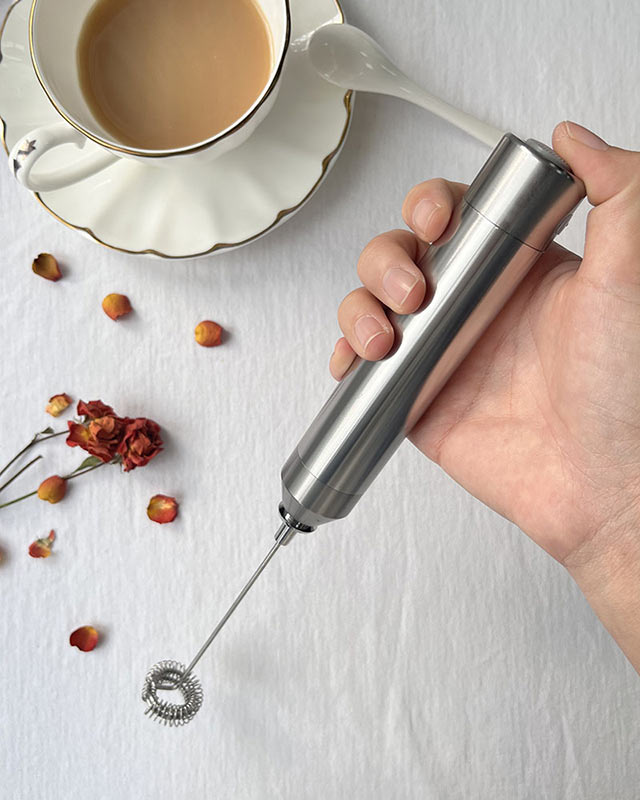To solve common problems with egg whisks, such as rust or bent wires, follow these steps:
Rust Removal:
Vinegar Soak: Rust on egg whisks can be effectively treated by immersing the affected parts in a solution of equal parts white vinegar and water. Vinegar's acidic nature helps dissolve rust over time, typically within 30 minutes to an hour. Ensure all rusted areas are fully submerged. After soaking, use a soft-bristled brush or non-abrasive sponge to gently scrub the whisk, focusing on loosening and removing rust particles. Rinse thoroughly with clean water and dry completely to prevent future rusting.
Baking Soda Paste: Create a paste by mixing baking soda with enough water to form a thick consistency. Apply this paste directly onto rusted spots of the whisk, ensuring complete coverage. Allow the paste to sit for several hours or overnight, depending on the severity of the rust. Baking soda acts as a mild abrasive that helps lift rust stains from metal surfaces. After the paste has had time to work, scrub the whisk using a soft cloth or brush, focusing on stubborn areas. Rinse the whisk thoroughly with water and dry it completely to prevent new rust formation.
Lemon Juice and Salt: Another effective method involves using lemon juice and salt. Squeeze fresh lemon juice onto the rusted areas of the whisk, ensuring the affected parts are well saturated. Sprinkle a generous amount of salt over the lemon juice-covered areas. The citric acid in lemon juice acts as a natural rust remover, while salt serves as a mild abrasive to help lift rust stains. Allow the lemon juice and salt mixture to sit on the whisk for several hours. Afterward, scrub the whisk thoroughly with a soft cloth or brush to remove loosened rust particles. Rinse the whisk with clean water and dry it completely to prevent further rusting.
Straightening Bent Wires:
Manual Straightening: For minor bends, carefully straighten the whisk wires by hand. Start at the base where the wires are attached to the handle, applying gentle pressure to gradually realign each wire. Work slowly and methodically towards the tips of the wires, ensuring even adjustment throughout. Take care not to exert excessive force, which could weaken or break the wires.
Use of Pliers: When dealing with more pronounced bends, use needle-nose pliers to assist in straightening the whisk wires. Grip the wire close to the point of the bend with the pliers' fine tips. Apply gentle pressure to the bent section, gradually coaxing it back into alignment. Work incrementally along the length of the wire, adjusting as needed to achieve a straightened configuration. Avoid over-bending or twisting the wires, as this can cause them to weaken or break.
Preventive Maintenance:
Dry Thoroughly: After each use and washing, meticulously dry the whisk using a clean, absorbent towel or cloth. Pay particular attention to drying between the wire loops and along the handle to remove any residual moisture. Proper drying is crucial in preventing the formation of rust, especially in humid environments or when storing the whisk for extended periods.
Store Properly: Store the whisk in a dry, well-ventilated area to minimize exposure to moisture and humidity. Avoid placing the whisk in enclosed spaces where air circulation is limited, as this can contribute to rust formation over time. Consider hanging the whisk or storing it upright to promote adequate airflow around the wires and handle.
Milk Frother, Milk Foamer, Coffee Mixer, Mini Mixer, Stirrer, Whisk EP-568B-1




 English
English
 Français
Français
 Español
Español
 Deutsch
Deutsch
 日本語
日本語





























